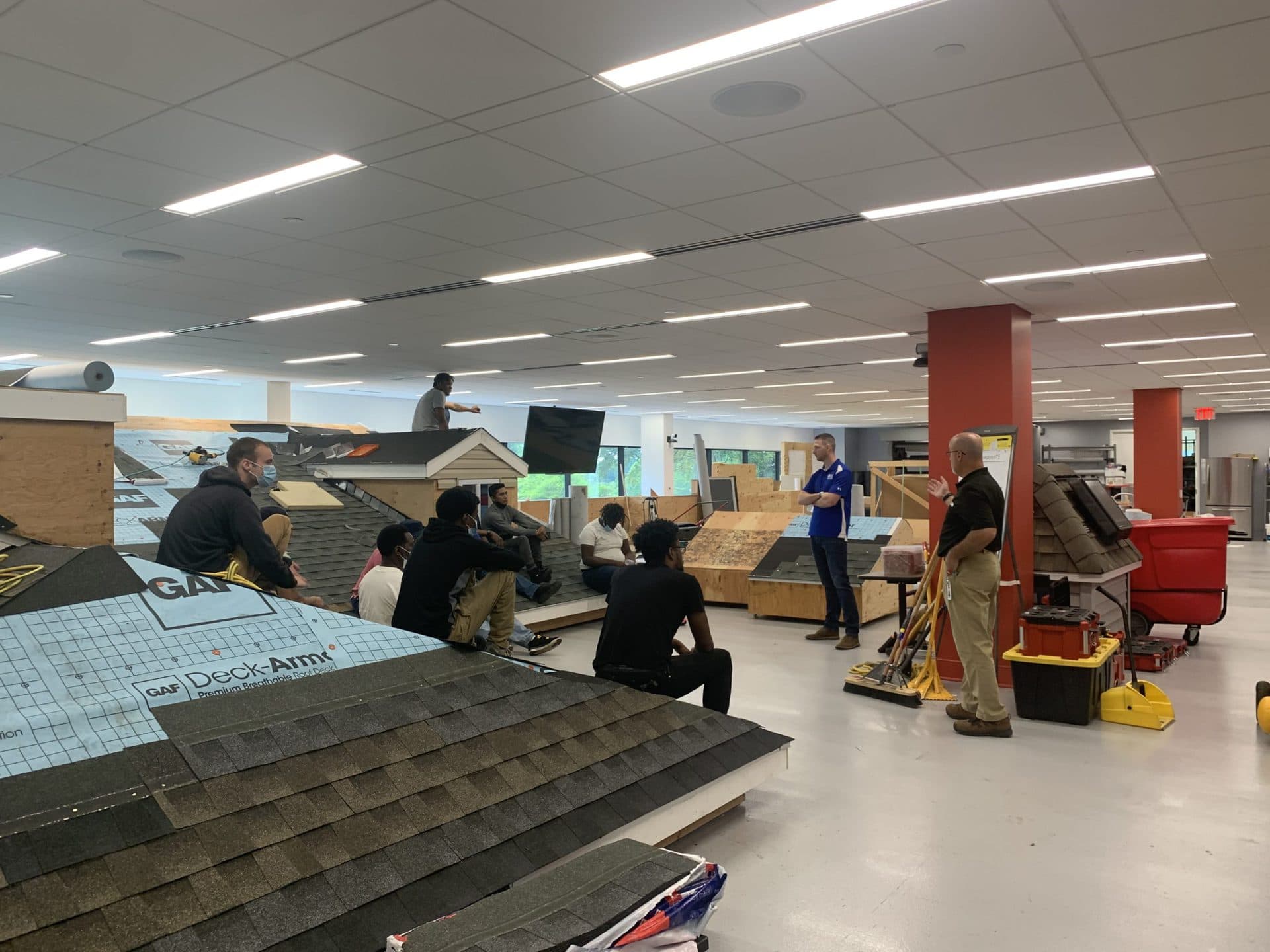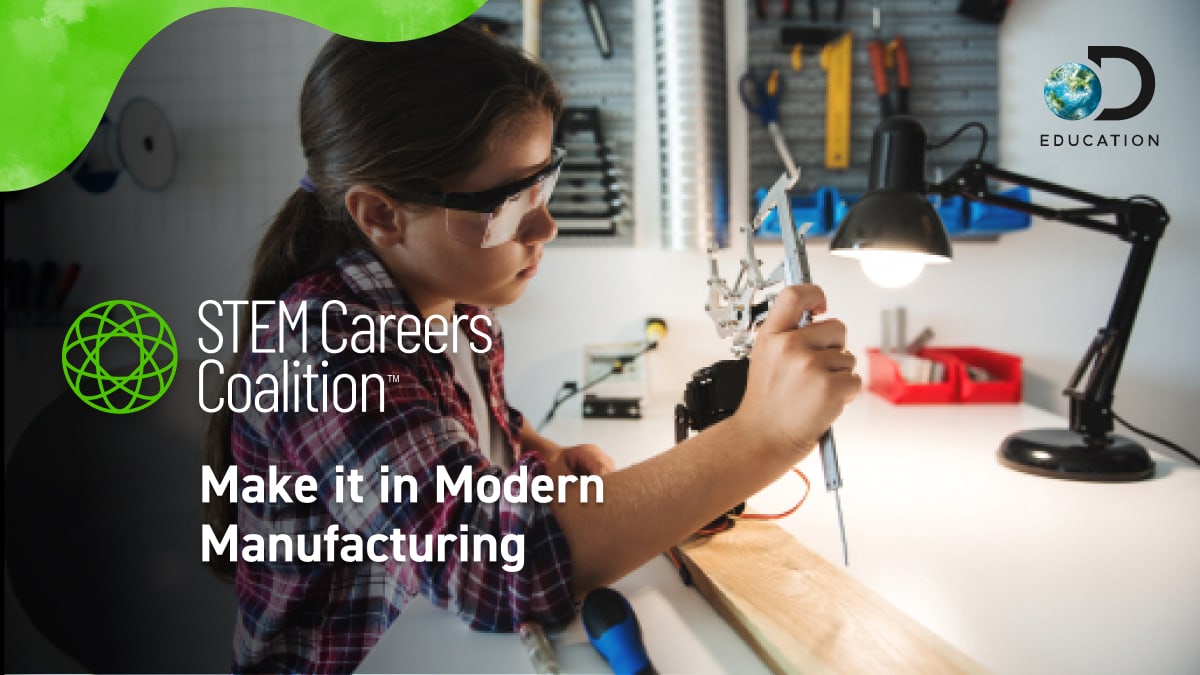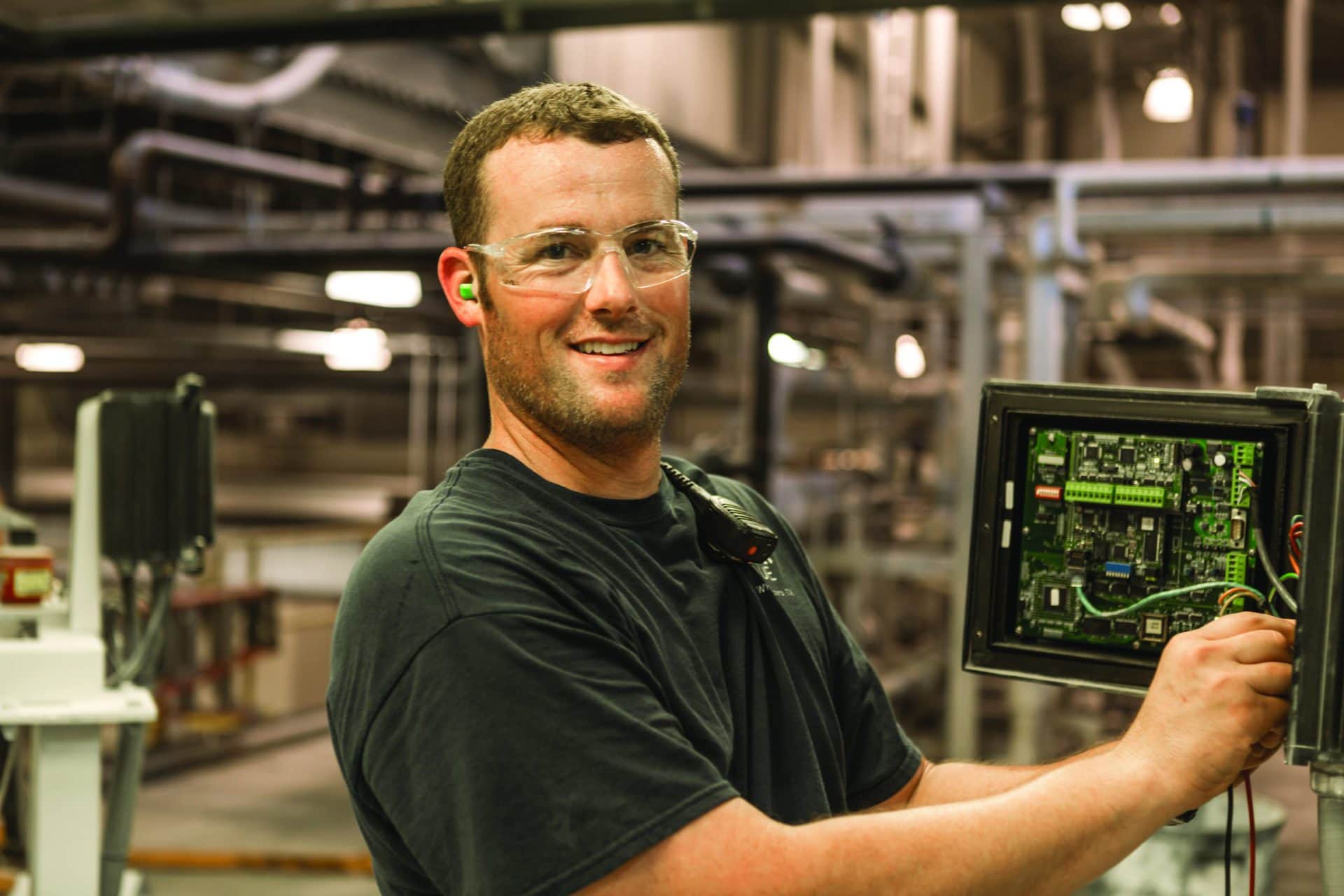By Rachael Scheffler, Senior Director, STEM Careers Coalition™

Loud work sites, long hours, and little pay – this is how many people imagine construction and manufacturing jobs to look like. In reality, both boast state-of-the-art technology, fascinating career growth, and competitive pay. But reports illuminate that one of the greatest issues facing U.S. contractors and manufacturers is the continued shortage of people pursuing the multitudes of manufacturing careers. Research shows that right now in the United States, there are nearly one million manufacturing positions unfilled, costing the U.S. about $1 trillion by 2030!
Construction and manufacturing, as industries, are facing labor shortages. Recruitment challenges include the fact that many don’t count manufacturing as part of the “M” in STEM (science, technology, engineering, and math), and that there is a lack of young, diverse workforce interested and skilled for STEM roles. These recruitment challenges impact everything from supply chains and resource allocation.
The good news? There’s a clear solution: education. High-quality STEM education plays a key role in building the foundation for those technology-based careers and addressing misperceptions of the STEM industries out there today. Today, talented individuals with an education and background in STEM are in growing demand.
However, when it comes to STEM education, not all students are currently set up for success. According to the U.S. Department of Education, high poverty education districts in the U.S. spend 15.6% less per student, leaving both the students and educators with fewer opportunities to access STEM resources.
Disparities like this form long-lasting diversity inequities. For example, reports show that while women make up about 47% of the total workforce, they only make up about 30% percent of the 15.8 million people employed in manufacturing industries, and only 1 in 4 manufacturing leaders are women. In addition, Hispanic adults occupy only 8% of all the STEM workforce, while Black STEM employees constitute only 9% of STEM jobs. Unfortunately, these statistics haven’t changed since 2016 finds Pew Research.

In an effort to advance the future of STEM education through inclusive learning, Discovery Education, in partnership with a cohort of corporate leaders, formed the STEM Careers Coalition™. Industry leaders like GAF, Caterpillar, Procter & Gamble, Boeing, The Manufacturing Institute, Stanley Black & Decker, and many others joined this national STEM initiative connecting directly with schools to create resources and opportunities for diverse students to see themselves in the future STEM workforce. Aimed at students, educators, and families, the Coalition provides access to resources and experiences, building workforce-ready classrooms inspired to pursue STEM.
In addition to raising awareness of the opportunities available in the manufacturing and construction sectors, it is essential to arm students with the necessary skills to be successful in these technology-based careers.
“At GAF, we’ve historically invited students into our facilities where we provide visibility to the STEM career options available to them in their own communities. However, due to the COVID-19 pandemic, we were unable to host in-person events and had to find other ways to connect with our communities.,” said Jeff Terry, Vice President, Corporate Social Responsibility & Sustainability at GAF.
“Alongside the STEM Careers Coalition and the diverse array of industry leaders, we were able to pivot to meet the needs of education during the ongoing pandemic to show students career opportunities in modern manufacturing.”
As one example, the COVD-19 Solution Seekers video series demonstrates the flexibility of STEM careers by showcasing real STEM professionals talking about how they are harnessing their STEM skills to help contribute to this urgent global effort.
The partnership with Discovery Education serves as one part of GAF’s social impact initiative, GAF Community Matters. The multi-faceted program focuses on making a positive difference as neighbors and partners in the community by leveraging the company’s expertise, resources, and products to help build resilient communities.

“One of the key focus areas of GAF Community Matters is to help build careers in manufacturing and roofing through education and training and thus equipping the next generation for success,” said Terry. “That includes supporting career development, STEM, and innovation and opportunity in the roofing and manufacturing industries.”
Content like this, crafted through strategic and thoughtful partnerships, helps inspire students through demonstrations of innovative thinking and connects the dots between the application of problem-solving skills to important real-world challenges. Students who are interested in pursuing manufacturing and skilled trades careers after high school can be influenced by the encouragement, experiences, and opportunities they have to participate in career and technical education or vocational training during their high school years. It’s important for the STEM professionals of today to help students see what they can be.
As of 2021, The Coalition has reached more than 4.5 million students in the mission to build the next generation of diverse STEM solution-seekers. The workforce of the future is dependent upon industries investing in STEM education and supporting equitable learning opportunities for all school communities. Industry leaders currently participating in the STEM Careers Coalition are committed to developing and growing a diverse workforce pipeline and acknowledge that having STEM skills serve as an important foundation to employment and career opportunities.
Learn more about the STEM Careers Coalition online at https://stemcareerscoalition.org. All photos shown illustrate how GAF builds STEM equity in partnership with Discovery Education.
